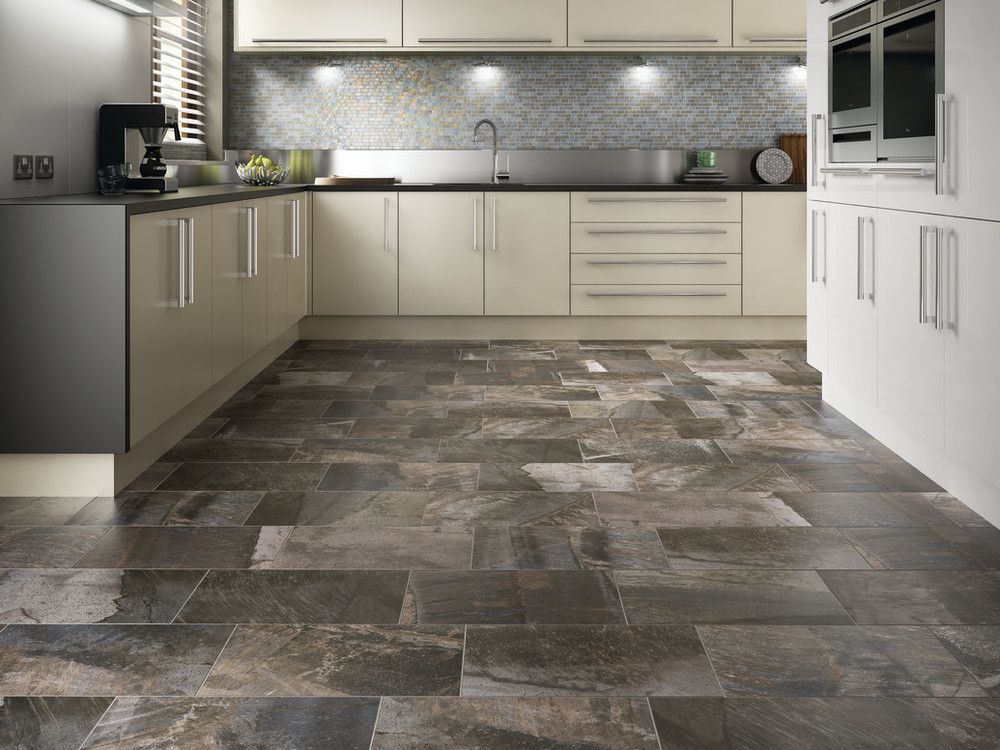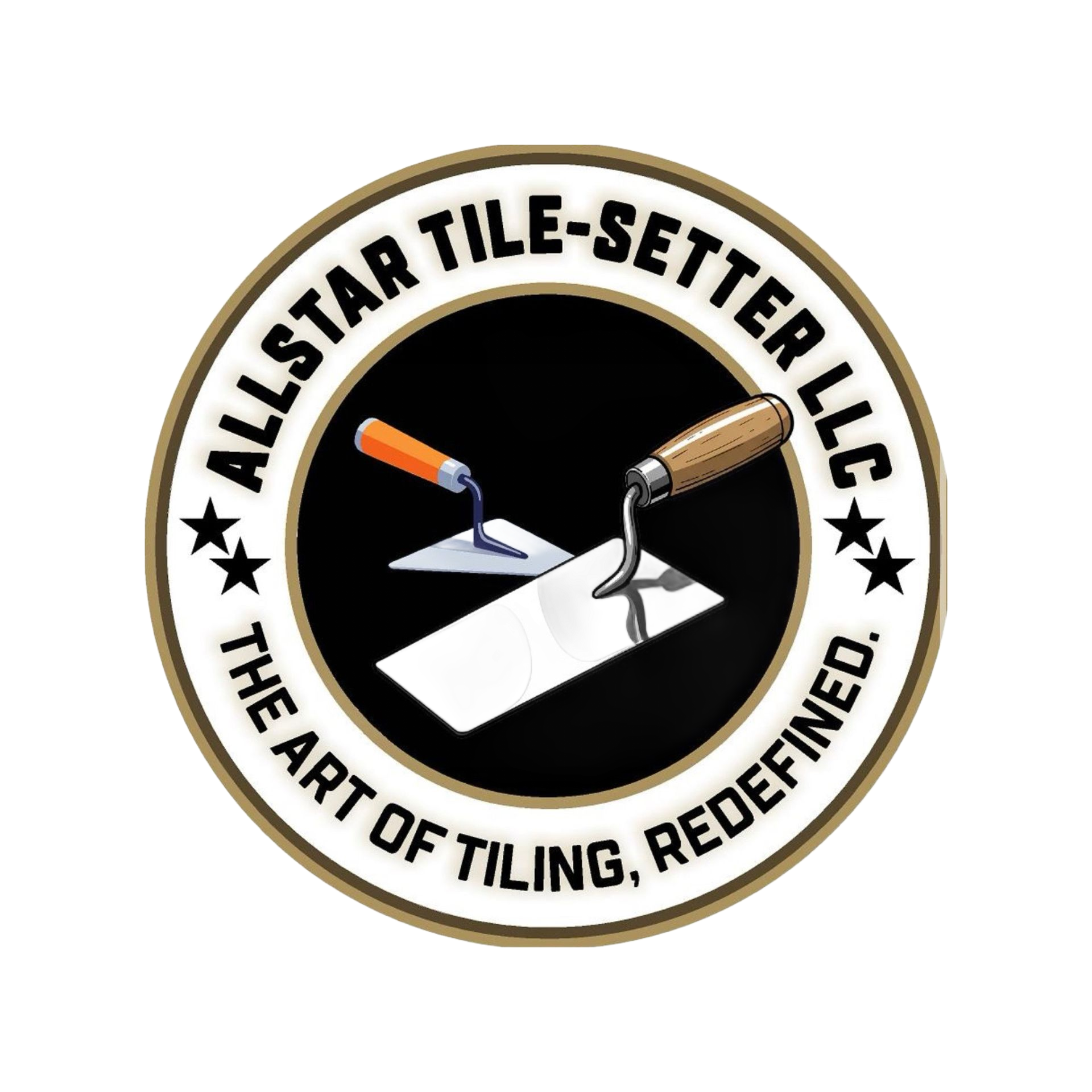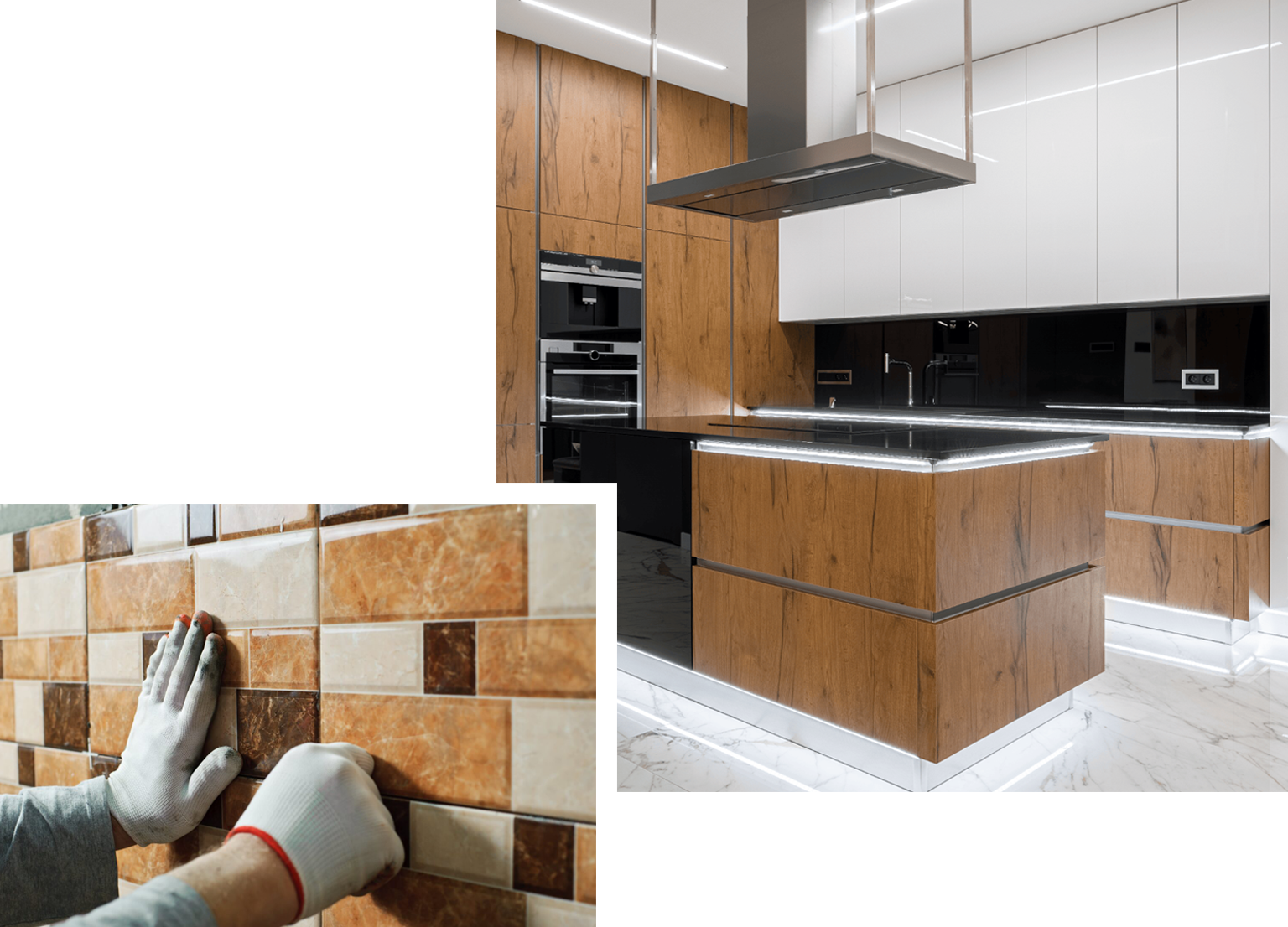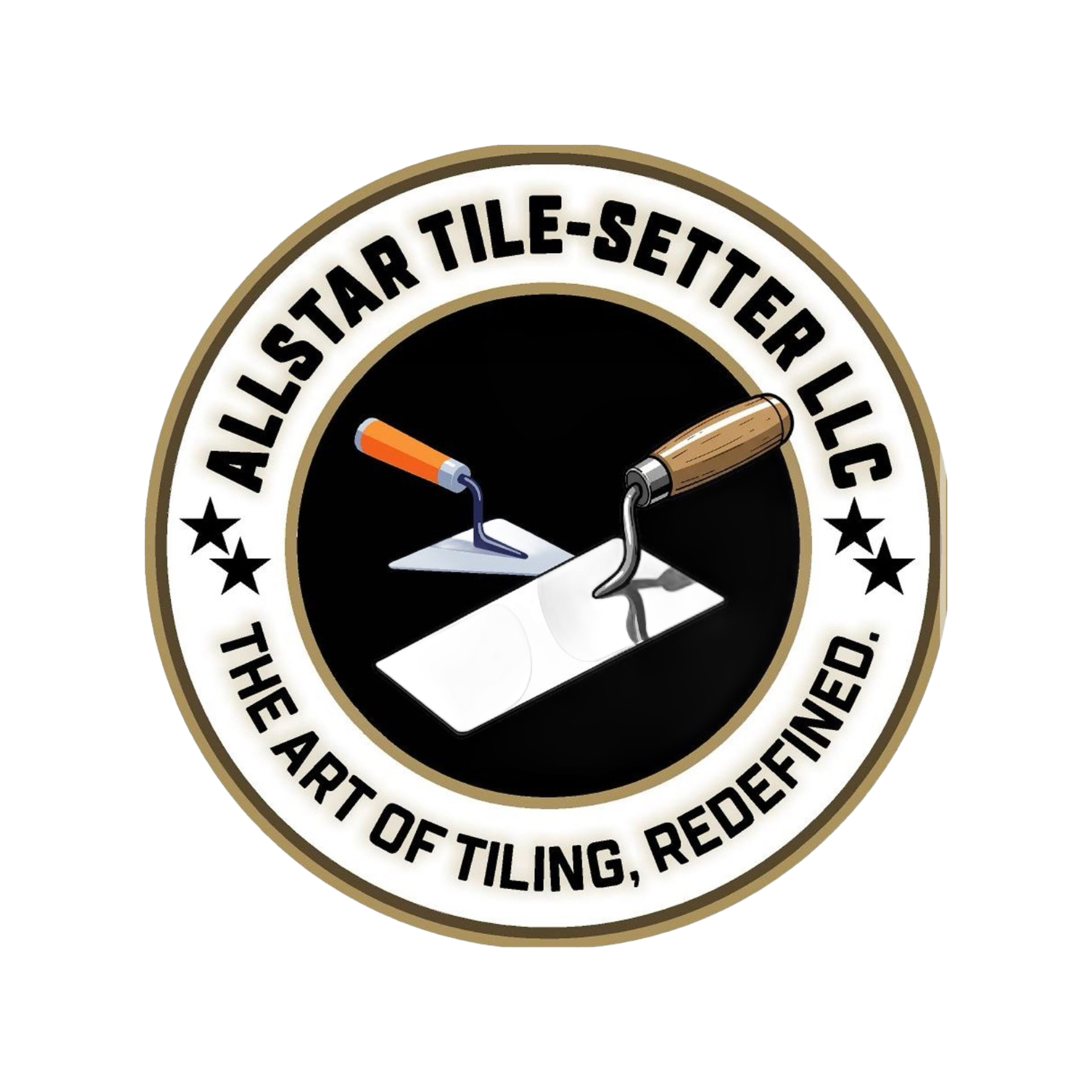🏆 A Legacy of Craftsmanship
Creating the Talent of Ceramic
and Tiling Services.
This is more than just a service—it’s an artistic revelation, a celebration of the mastery behind tiling and ceramic craftsmanship.
Residential and Commercial Expertise
Whether you're revamping your kitchen, bathroom, or commercial space, we have the expertise to handle projects of all sizes. Our commitment to quality remains unwavering, no matter the scale.
Professional
Consultation
Not sure where to start? We can guide you through the entire process. From selecting the ideal tiles to planning layouts, we provide personalized recommendations to meet your unique needs.
Diverse Tile
Selection
Discover a vast array of tiles to suit every taste and style. Whether you prefer classic porcelain, modern ceramic, or intricate mosaic patterns, we have the perfect tiles to enhance your home or business.
OUR SERVICES
What We Offer
For inquiries, quotes, or any assistance, please don’t hesitate to reach out to us. We look forward to serving you with our expert tiling services!
Bathroom & Kitchen Tiles
We bring the right people together to challenge established thinking and drive transform in 2020
Tile Install & Grout
We bring the right people together to challenge established thinking and drive transform in 2020
Floor Tile & Fireplace
We bring the right people together to challenge established thinking and drive transform in 2020
Ceramic & Marble Tiles
We bring the right people together to challenge established thinking and drive transform in 2020

As we celebrate two decades of achievements, we look forward to the future with excitement and determination. The next chapter in our story is filled with new challenges, innovations, and opportunities to continue leaving a lasting impact on the world of tiling and ceramics.
20 Years Of Trusted Experience.
From humble beginnings to becoming a trusted name in the industry, our relentless pursuit of excellence has allowed us to expand our services across. Our projects range from residential spaces to commercial establishments, and we take pride in having left our mark on numerous iconic structures throughout the years.
The Impact of Large-Scale Tiles in Contemporary Design
The satisfaction of our clients remains our top priority, and our commitment to transparent communication, on-time delivery, and exceeding expectations has been the cornerstone of our success.
🛠️ Allstartilesetter Innovative Solutions
At Allstartilesetter, we are proud to mark a significant milestone in our journey – 20 years of unwavering commitment to delivering exceptional tiling and ceramic solutions. Since our inception in , we have been at the forefront of transforming spaces with our expertise, innovation, and dedication to perfection.
TILING SERVICE FAQS
Commonly Asked Questions
1. How much does tile installation cost per square foot?
The cost of tile installation varies significantly based on multiple factors, but here’s what you can expect in 2025:
Labor costs typically range from $3 to $15 per square foot, with most homeowners paying around $5 to $10 per square foot for standard installations. However, the total project cost (including materials) can range from $5 to $45 per square foot.
Several factors influence the final price:
- Type of tile: Ceramic tiles are the most affordable ($4-$15/sq ft installed), while natural stone like marble can cost $10-$50/sq ft installed
- Installation location: Floors typically cost less than walls, while shower installations cost more due to waterproofing requirements
- Room type: Bathrooms and kitchens often cost more due to complex cuts around fixtures
- Geographic location: Urban areas typically have higher labor rates
- Project size: Larger projects may have lower per-square-foot costs
- Substrate condition: Floors requiring leveling or repair will increase costs
- Installation pattern: Complex patterns like herringbone can increase labor costs by 20% or more.
For a typical 200-square-foot project, expect to pay between $1,000 and $9,000 total, with the average falling around $2,000-$4,000 for standard ceramic or porcelain tile installation.
2. What questions should I ask a tile installer before hiring them?
Asking the right questions can save you from costly mistakes and ensure a professional installation. Here are the essential questions to ask:
Certification and Experience:
- Are you a Certified Tile Installer (CTI)?
- How many years have you been installing tile as a lead installer?
- Do you have experience with my specific type of tile (marble, large format, etc.)?
Technical Knowledge:
- Do you own and use the TCNA (Tile Council of North America) Handbook?
- Can you provide the contact information for your local manufacturer’s representative?
- What waterproofing method will you use for my shower/wet areas?
Insurance and Licensing:
- Do you carry general liability insurance and workers’ compensation?
- Are you licensed in this state (if required)?
- Can you provide proof of insurance before starting?
Project Specifics:
- What type of mortar/adhesive will you use for my tiles?
- Will you perform a flood test on the shower pan?
- How do you ensure proper substrate flatness for large format tiles?
- What is your plan for dealing with potential asbestos in existing flooring?
References and Warranty:
- Can you provide at least three recent references?
- What warranty do you offer on your work?
- Can I see a portfolio of similar projects you’ve completed?
Practical Matters:
- What are your work hours, and how long will the project take?
- How do you handle unexpected issues or change orders?
- What is your payment schedule?
3. How do I properly waterproof a shower before tiling?
Proper shower waterproofing is crucial to prevent water damage, mold growth, and structural problems. Here’s a comprehensive guide to modern waterproofing methods:
Modern Waterproofing Systems:
1. Liquid-Applied Membranes (like RedGard)
- Apply to cement backer board or approved substrate
- Roll on like paint - goes on pink/red, dries to indicate full cure
- Apply two coats for maximum protection
- Cost: About $90 per gallon (covers 55 sq ft)
- Ideal for DIY projects due to ease of application
2. Sheet Membranes (like Schluter-Kerdi)
- Polyethylene membrane bonded with thin-set mortar
- Provides uniform thickness and reliable waterproofing
- Requires proper sealing at seams, corners, and penetrations
- More expensive but highly reliable
- Professional installation recommended
3. Foam Board Systems
- Pre-sloped, waterproof foam boards (like Wedi or GoBoard)
- Lightweight and easy to install
- Integrated waterproofing - no additional membrane needed
- Higher upfront cost but saves time
Critical Waterproofing Steps:
1. Substrate Preparation: Ensure walls are plumb and substrate is appropriate (cement board, not standard drywall)
2. Vapor Barrier: Install behind cement board in wood-framed walls
3. Seams and Corners: Use manufacturer-approved tape or fabric at all transitions
4. Penetrations: Properly seal around valves, shower heads, and drains with appropriate collars
5. Flood Testing: Fill shower pan with water for 24 hours to verify waterproofing before tiling
Common Mistakes to Avoid:
- Skipping the pre-slope under the liner
- Not extending waterproofing high enough (minimum 3” above curb)
- Improper drain connection
- Using incompatible products from different manufacturers
4. What’s the average cost to remove old tile flooring?
Tile removal costs vary based on several factors, but here’s what to expect:\
Standard Tile Removal: $2 to $7 per square foot
Factors affecting cost:
- Type of existing flooring:
- Ceramic/porcelain tile: $2-$5/sq ft
- Natural stone: $3-$7/sq ft
- Multiple layers: Additional $1-2/sq ft per layer
- Substrate condition: Removing adhesive and preparing substrate adds cost
- Disposal fees: $150-$200 for typical residential project
- Location in home: Second-floor or difficult access areas cost more
Asbestos Considerations:
If your home was built before 1980, tiles may contain asbestos:
- Testing costs: $230-$780
- Asbestos tile removal: $5-$20/sq ft (average $2,200 total)
- Requires licensed professionals
- Includes special containment and disposal procedures
- Encapsulation (covering rather than removing) can save 15-20%
Additional Costs:
- Subfloor repair/replacement: $3-$10/sq ft
- Furniture moving: $50-$200
- Dust containment for occupied homes
5. How often should tile and grout be professionally cleaned?
The frequency of professional tile and grout cleaning depends on several factors:
General Guidelines:
- High-traffic areas (kitchens, entryways): Every 12 months
- Bathrooms: Every 12-18 months
- Low-traffic areas: Every 18-24 months
- Commercial spaces: Every 6-12 months
Factors Affecting Cleaning Frequency:
- Foot traffic: More traffic means more frequent cleaning needed
- Grout color: Light-colored grout shows dirt more readily
- Grout type: Sanded grout is more porous than epoxy grout
- Presence of pets or children: Increases cleaning needs
- Regular maintenance: Good weekly cleaning extends time between professional cleanings
Professional Cleaning Process:
- Inspection: Identify problem areas and damaged grout
- Pre-treatment: Apply specialized cleaning solutions
- Agitation: Scrub grout lines with professional equipment
- Hot water extraction: Remove dirt and cleaning solution
- Sealing: Apply grout sealer to protect against future staining
Benefits of Professional Cleaning:
- Removes up to 96.5% of common household allergens
- Eliminates deep-seated dirt home methods can’t reach
- Extends the life of tile and grout
- Restores original appearance
- Identifies areas needing repair
Cost: $250-$650 for average residential job
6. What are the best methods for cleaning grout at home?
Maintaining clean grout between professional cleanings is essential. Here are the most effective DIY methods:
Top DIY Grout Cleaning Methods:
1. Baking Soda and Hydrogen Peroxide Paste (Most Effective)
- Mix: 3/4 cup baking soda + 1/4 cup hydrogen peroxide + 1 tbsp dish soap
- Apply paste to grout lines
- Let sit 15-20 minutes
- Scrub with stiff brush
- Rinse thoroughly
- Effectiveness: Excellent for most stains
2. Commercial Cleaners
- Products like Zep Grout Cleaner work well
- Follow manufacturer instructions carefully
- Provide good results with less scrubbing
- Cost: $8-$15 per bottle
3. Steam Cleaning
- Great for routine maintenance
- No chemicals needed
- Less effective on deep stains
- Can remove grout sealer
Weekly Maintenance Tips:
- Wipe grout with rubbing alcohol weekly to prevent mold/mildew
- Use pH-neutral cleaners for regular mopping
- Avoid acidic cleaners (vinegar) that can damage grout
- Dry shower walls after use to prevent moisture buildup
What to Avoid:
- Bleach on colored grout (causes fading)
- Acidic cleaners (vinegar, lemon juice) - damages grout
- Wire brushes - can scratch tile and damage grout
- Oil-based cleaners - leave residue that attracts dirt
Natural Stone Considerations:
For marble, travertine, or other natural stone:
- Use only pH-neutral cleaners
- Never use acidic or abrasive products
- Consider professional-grade stone cleaners
- Seal regularly to prevent staining





